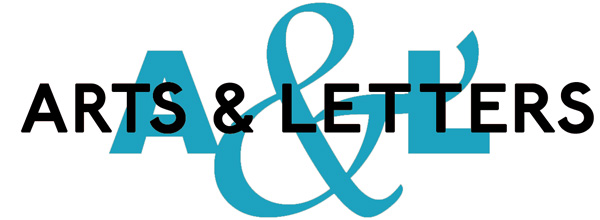Our managing editor, Abbie Lahmers, interviewed Micah Dean Hicks, last year’s winner of the Arts & Letters Fiction Prize. His winning story, “The Deer,” can be read in Issue 33.
Abbie Lahmers: It seems like you write a lot of magical realism/fabulism, or stories that take place in similar but slightly different universes than our own. How do you navigate world-building and coming up with, for instance, the idea of a deer boy?
Micah Dean Hicks: For this story, I’d been reading a lot of fairy tales. People being transformed into animals was a common theme. I started thinking about how sad it would be for the opposite to happen, for a wild animal to become trapped in a human body.
A similar thing happened when I read the Brothers Grimm tale “The Six Swans.” In that story, six brothers are transformed into swans for six years. It struck me that the youngest boy would have been very young when he was turned into a bird. How would it feel to live half your life as one thing and half as another? Would you even know what you were after that? Would you want to be human again? That grew into my story “Church of Birds,” which was recently published in Kenyon Review Online.
I usually start with a weird image or a magical conceit. That’s what gets me interested in the story to begin with. Recent images have included an old woman baking the dead back to life in her oven, a child clacking shed antlers together, a taxidermist making a wedding dress out of fur and fang, a place where seashells rain from the sky, and a boy with the swan wing. From there, I start asking questions. Why are these shed antlers important to the child? What is his life like? What is painful for him?
As far as the rest of the world-building, I draw pretty heavily from where I grew up in rural Arkansas. That palette of images and colors makes its way into everything I write. In a place like that, it isn’t hard to imagine fairy tales and fables crawling out of the woods.
AL: Tell me a little about your book, Electricity and Other Dreams—I recently ordered it and am looking forward to reading it! What should I expect?
MDH: That’s very kind of you! The stories are about things like plumbers who exorcise ghosts, jugglers who become criminals, and electricians who can bring light with a touch.
At the time I wrote them, I was reading a lot of Aimee Bender and Hans Christian Andersen. The stories have a flat, fairy tale quality. A lot of characters are unnamed—the plumber, the electrician, the old woman, etc. They’re very interested in mythmaking and archetype.
AL: What are you working on now that you’re most excited about?
MDH: I recently finished a new collection of fabulist and fairy-tale-inspired stories. The working title is Chant. With this new collection, I’m trying to dive much deeper into character psychology than I have before. I’m also playing more with voice, trying to make the language muscular and musical.
And I’m currently working on a novel about a poor Kansas town plagued by ghosts. The town is slowly collapsing, the only employer left a pork processing plant that maims and mistreats its workers. Generations of ghosts who have watched everything they care about wither, so they possess the living and try to reclaim what they lost. I’ve been working on it for a few years now. Each time I think it’s done, I realize something foundational isn’t working, and I end up rewriting it from scratch. It’s been a pretty humbling experience. I’m hoping to have a final version of it ready by late summer, though.
AL: What advice do you have for writers considering submitting to the A&L Prize contest or other contests and journals?
MDH: I just took up this question with my Editing and Publishing students. I had them look at contest-winning poems and stories from several journals and asked, “Why did these win? What’s special about them?” Aside from the fact that everything we read was so incredibly good—Mikayla Ávila Vilá’s “Trumpeteers” in Boston Review, Katie Knoll’s “Red” in The Masters Review, and Rochelle Hurt’s poem “Kaleidoscope” in Phoebe Journal, to name three—I think a lot of it comes down to voice. If you can tell your story in a way that hums and crackles electric, if you can make it sound like nothing else, readers will pay attention.
A good voice seems to make its own slang. The first line of Hurt’s poem reads, “We blow our paper on toe rings & studded spandex, then go all-pennies-in on who’s first to leave the / water undressed.” When I first read that poem, I was stunned by the phrase “go all-pennies-in.” What a great way to say that.
Voice was a major concern for me with “The Deer.” I kept rewriting the first page, over and over, until I liked the sound of the sentences. Using good verbs and images was important. I wanted the speaker’s world to feel like a very tactile, physical place, sticky and sharp.
The hard thing about writing an aggressive, pop-the-reader-in-the-eye voice is that you still have to be as clear as possible. If reading the story is a chore, we’ll put it down.
AL: What are you reading right now? And, the unavoidable question—who are some of your literary (or non-literary) influences?
MDH: Right now, I’m working through Lauren Groff’s Delicate Edible Birds and Ken Liu’s The Paper Menagerie. Liu is so inventive and a great storyteller. With Groff, I’m amazed at how layered and rich her stories are. She’s so masterful at character, too. I think about characterization a lot, because it doesn’t come naturally to me. In the last few years, I’ve worked really hard on character from the standpoint of the reader: How do you make the reader fall in love with your character? Groff is great at that, but what’s more impressive is how she manages character vs. character relationships. Any two people she puts on the page have so much history, so much conflict, so much messy and strange love between them. I’m in awe of that.
As far as influences, there have been so many. They stack up like geologic strata. If I had to pick one moment that was formative for me as a writer it would be reading the stories of Gabriel García Márquez. He had this perfect way of marrying the supernatural—winged men, women who pass through walls, alchemy, ghost ships—with rural poverty. Because of where I grew up, that resonated so strongly with me. His stories felt like home, even though he and I come from very different places. I’d never seen anyone do that before, and it showed me how to blend my interest in magical narratives with my own experience. Before reading him, I never really wrote about where I came from. He showed me how to do that. *
The 19th Annual Arts & Letters Prize Competition is still open for submissions through March 31st!








Pingback: Contributor Update: Micah Dean Hicks – s [r] blog